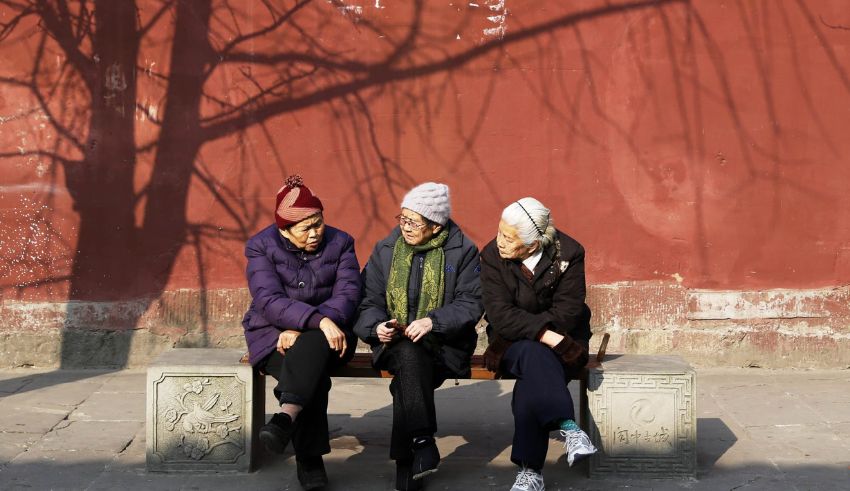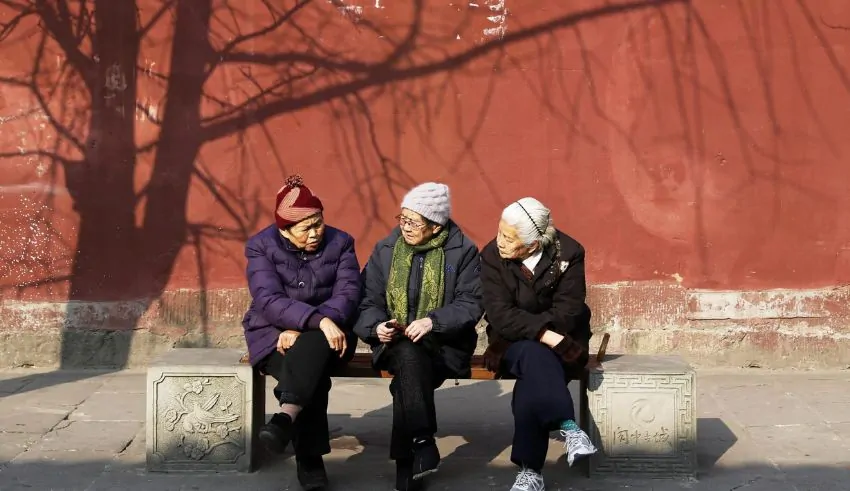

(C) East Asia Forum
China, in an attempt to address the urgent problem of a declining population and an aging workforce, will increase its retirement age starting next year, currently among the lowest among major world nations. Last Friday the Standing Committee of the National People’s Congress approved the long-awaited policy modification after years of discussion. Made earlier in the week, this abrupt declaration has generated a lot of discussion as the nation deals with demographic and financial issues.
China’s change in retirement age will be carried out gradually over the following fifteen years. Men’s retirement age under the new policy will climb to 63 years, while women will retire depending on their line of work at 55 or 58. Established since the 1950s, the present system sets the retirement age at 60 for men, 50 for women in blue-collar jobs, and 55 for women in white-collar professions. When life expectancy in China was roughly forty years, this antiquated method was developed in sharp contrast to the present, when individuals live far longer.
The phased method will consider birthdates of workers and progressively raise the retirement age depending on birthdate. A man born in January 1971, for example, will retire at 61 years and 7 months in August 2032; a man born in May 1971 will retire in January 2033. This deliberate development seeks to ease the change by aligning the national economic demands with the expectations of its people.
The fast aging population of China makes retirement reform not only relevant but also very vital. China recorded around 300 million individuals aged 60 and above by the end of 2023; this figure is predicted to rise to 400 million by 2035, exceeding the whole population of the United States. With analysts estimating that the national pension fund will run out by 2035 if no major action is done, such a large senior population will put unsustainable strain on China’s pension system.
Not just the Chinese government is confronting this difficulty. For instance, the United States is likewise dealing with such problems since studies indicate the Social Security fund would find it difficult to pay full benefits by 2033. But considering China’s huge population and the speed of its demographic transformation, the task is significantly more difficult. Senior fellow for global health Yanzhong Huang of the Council on Foreign Relations pointed out that although many countries deal with the same problem, China’s position is more serious because of its large aging population.
A marked drop in birth rates aggravates China’s demographic dilemma since many young couples decide not to have children because of the high expense of living. The first such drop in decades, the National Bureau of Statistics recorded a population drop of 850,000 in 2022. The population dropped by another 2 million individuals as this trend persisted into 2023.
Given a declining base of young workers and an increasing old population, the pension system—which is mostly funded by deductions from the present workforce—is under great pressure. Social security programs are under increasing financial pressure as less workers support more pensioners. In 2022 China’s dependency ratio—that is, the proportion of persons 65 and older to those under 65—stood at 21.8 percent. This implies that, given the projected increase in the next few years, almost five employees support one retiree.
The reform on the retirement age arrives at a period when China’s economy is already facing challenges including high rates of young unemployment and slow economic recovery. Though the reform is essential for long-term stability, experts caution that it will probably inflict some suffering. Particularly in sectors where young people are already struggling to obtain employment, competition for jobs could get more fierce as more individuals remain in the labor for longer.
Public responses to the policy change have been conflicted. Given the aging population of the nation, some believe the shift is a required adaptation; others point out that many modern nations already have higher retirement ages. Giving his surname as Lu, a 52-year-old Beijing resident said, “I view this as a good thing, since our society’s getting older and in developed countries, the retirement age is higher.”
Others, on the other hand, show less zeal. The 35-year-old event planner Li Bin expressed her dismay at the new policy, saying she had been looking forward to retiring earlier to travel and savor more free time. “It’s three years less of playtime,” she said regretfully. She admitted, however, that the reform was not as radical as she had hoped, pointing out that the retirement age was only raised by three years for women in white-collar professions such as hers.
Although the new retirement policy has generated a lot of discussion on the internet, not all viewpoints have been allowed to flourish. Only a few dozen of the 13,000 comments on a Xinhua news item announcing the reform were available, which sparked rumors that many negative comments had been deleted. This is a reflection of a larger trend in China whereby the government frequently carefully controls public debates on delicate subjects.
China’s audacious plan to increase the retirement age tackles the impending dilemma of an aging population and taxed pension system. Although this is a required first step toward guaranteeing the long-term economic stability of the nation, the policy will probably cause short-term difficulties especially as the nation battles high unemployment and an economic downturn.
Some of the early unpleasantness may be lessened by the reform’s slow implementation and phased rise in retirement age allowing for Experts caution, meantime, that the strategy by itself won’t address all of China’s demographic problems. To control the financial loads of an aging society and boost greater birth rates, the government will have to implement extra policies.
The success of this reform will rely on how well it strikes a balance between the needs of an aging population and the aspirations of younger generations already under financial strain from modern living. Although the immediate consequences may raise questions, many view the reform as a required and overdue corrective that will finally help the future of the nation.
Big investment company KKR is close to finishing its purchase of Japanese medical equipment manufacturer Topcon as private equity firms…
Indeed, it is, and it marks a milestone in medical research as it transpired that doctors in China successfully transplanted…
Many fans and industry professionals saw Prithviraj Sukumaran's L2 Empuraan movie release on Thursday as a mixed success that gained…
Filipina teenager Alexandra Eala, 19 year old girl has achieved one of the biggest milestones in WTA season by defeating…
After waiting for a solid six years, Marvel Studios has divulged its next Avengers movie—Avengers: Doomsday. And the cast is…
Through software update Nothing OS 3.1 the company improves functionality of Phone (3a) and Phone (3a) Pro models. Global service…
This website uses cookies.
Read More